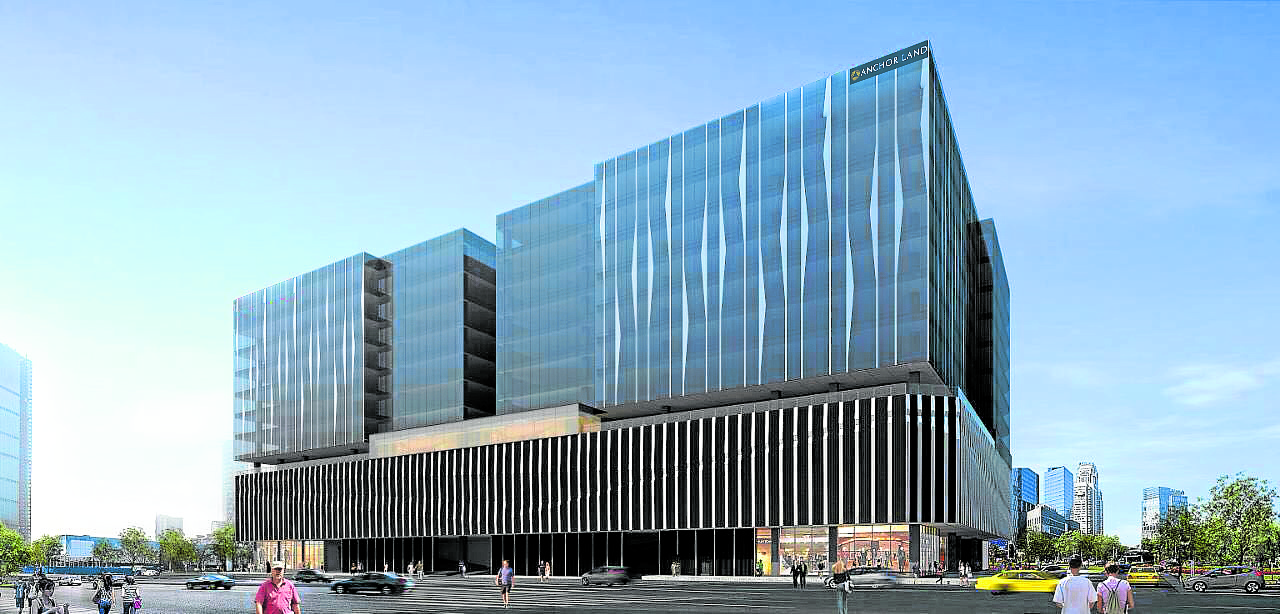Office space built for the new normal
The Metro Manila office property market may likely see green shoots of recovery by next year, with absorption seen to be led by occupants providing essential services and outsourcing firms that are expanding to comply with the government’s new health protocols.
In its latest report, Colliers International Philippines noted that there has been a significant slowdown in leasing activity in Metro Manila due to reduced space demand and muted economic activity amid the COVID-19 pandemic and the stringent lockdowns being imposed since March.
Economic recovery
Colliers, however, pointed out an upside: the Bangko Sentral ng Pilipinas is projecting “some form of economic recovery starting in the fourth quarter of 2020. This should also be supported by the expansion of outsourcing firms to comply with the government’s social distancing protocols. This should support growth in office leasing in the next six to 18 months and should result in a 2 percent growth in rents starting 2021.”
“Over the next 12 months, we see occupants providing essential services (such as healthcare) leading office absorption while some outsourcing firms might opt for plug-and-play offices for their immediate space requirements,” it further stated.
Prior to the COVID-19 outbreak and the lockdown, Colliers had forecasted the delivery of about 1.02 million sqm of new office space per year from 2020 to 2022, with 56 percent of the new supply was scheduled in the Bay Area, Fort Bonifacio, and Ortigas.
Vast potential
Office space absorption was particularly strong in the Bay Area, Quezon City and Alabang, where buildings completed were fully leased as of end-2019. In the Bay Area alone, bulk of the office deals were covered by outsourcing firms, which were then expected to sustain robust office leasing transactions in 2020.
Article continues after this advertisementIn fact, the Bay Area was touted to hold a vast potential with its office stock previously forecasted to exceed 1 million sqm by the end of 2020, four times higher than the business district’s leasable stock in 2016. Faster expansion of leasable office space in the Bay Area was seen as the location was expected to capture the growing demand from other business districts. Pre-pandemic estimates by Colliers further showed that land values in the Bay Area were expected to grow the fastest at 30 percent to P440,000 per sqm in the first quarter of 2020, from the P339,000 recorded as of end March 2019.
Article continues after this advertisementMany developers had thus expedited completions to capture the potential opportunities in this segment. Only a few, however, were able to push through with their projects given the difficulties amid this unprecedented health crisis.
LEED Pre-certified gold
One of the few who was able to deliver on its commitment is Anchor Land Holdings Inc., which has started to accept tenants for The Centrium, a premium grade office development that will cater to the “new normal” needs of the IT-business process outsourcing industry and other businesses looking to move to an emerging business district like the Bay Area.
The IT BPO industry—touted as one of the major pillars of growth for the office property market—is seen to offer favorable prospects as companies are expected to absorb more space to comply with physical distancing protocols. As it is, even in the midst of the pandemic and stringent lockdowns, many outsourcing firms continued operations.
Comprised of two towers, The Centrium is a LEED pre-certified Gold office building, equipped with top-of-the line and energy efficient features. With this prestigious certification, tenants and locators can expect green features that will help ensure the sustainability of the building and its conduciveness as a workplace.
The Centrium’s strategic location along Aseana Ave. places it near the airport, world-class destinations and establishments and other business districts—made even more accessible via major thoroughfares and expressways. Proposed public infrastructure projects near the Bay Area, such as the Light Rail Transit (LRT) 1 Cavite Extension, Sangley Airport and Metro Manila subway, are poised to further add value to this emerging business district.
There is no doubt that the Bay Area remains an attractive destination, whose potential will become even more apparent as the Philippine economy starts its much awaited recovery.
